lJittorian Jjar .flews
Published by the Victorian Bar Council, Owen Dixon Chambers, 205 William Street, Melbourne, 3000



IN THIS ISSUE:

BAR REPORT

BAR CATERING

FAREWELL JUDGE DETHRIDGE
CHIEF JUDGE WHELAN
JUDGE MORNANE AND LEGAL AID IN VICTORIA


TO PRACTICE AND PROCEDURES
SUPREME COURT

BARRISTERS'


CRYPTIC










BAR COUNCIL REPORT
ADMISSION TO PRACTICE AS A BARRISTER

From 1963 to 1968 the Bar and the Law Institute of Victoria were greatly concerned about the quality of training received by many articled clerks and the difficulty of obtaining suitable articles. After running a ser ies of pilot courses, the Councils of the Bar and Institute in October 1967 recommended that a permanent post graduate school should be established in which the graduate should receive one year's full time instruction to fit him for practice either as a barrister or a solicitor. The Councils recommended that this tuition should, after a short transitional stage, be in substit· tution for the present one year's service under articles.
The recommendation met resistance in the Council of Legal Education. A committee considered the recommendation and made a compromise proposal.
It proposed that there be a six month practical training course each year and that before admission graduates should complete this course and serve six months' articles. Upon admission the practitioner would be required to spend the first six months' practice as either an employee Solicitor or a reader at the Bar.


This compromise proposal was approved by the Councils of both the Bar and the Institute When it Was put to the vote on the Council of Legal Education in 1968 it was overwhelm· ingly defeated, receiving only the votes of the representatives of the Bar and the Institute.
In 1971 the Leo Cussen Institute came into existence In 1972 it conducted four three· week courses of practical training, each for thirty articled clerks, and these were approved as part of articles In 1973 the Institute conducted a si x month course of practical training for articled clerks, and this again was approved under Rule 4 of the Council of Legal Educa· tion.
In 1973, following the making of a Wages Board Determination for articled clerks, the difficulty of obtaining Articles was becommg



insoluble. The Law Institute determined recommend that graduates be admitted to practice after satisfactory completion of a course of practical training to be conducted by the Leo Cussen Institute for Continuing Legal Education, but that a Solicitor who became admitted upon completion of such a course should not be entitled to practise as a principal Solicitor until he had completed twelve months service as an employee Solicitor. The Law Institute was of the view that an amendment to the Legal Profession Practice Act would be necessary to-enable these recommendations to be implemented.

The Law Institute sought the views of the Bar Council on these recommendations. The Bar Council discussed the recommendations but in the event resolved that it did not desire to ex· press a view on them. However, the Bar Council went on to resolve -
(i) that if any such proposals were im· plemented the Bar Council would wish that adequate arrangements should have been made before such implementation to ensure that students in the proposed School of Practical Training should receive adequate financial assistance during the period of the course ;
(ii) that no line be drawn between admission as a Barrister and adm ission as a Solicitor;
(iii) that admission in the Supreme Court should be the final step in enabling a person to practice as a barrister or a solicitor, and that such entitlement should not precl ude the Bar imposing its own requirement upon those who wish to sign the Bar Roll.
This year the Leo Cussen Institute is conducting a six months' course designed to provide instruction as an alternative to Articles. The students attending the course are apparently el igible for the same fim ncial assistance as is available to other tertiary level students, so to that extent the Bar Council's desire for adequate financial assistance has been met.



On the 17th December 1974, sub·committee




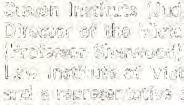

was appointed to consider changes to the Rules relating to the qualifications of those eligible to practice as Barristers and Solicitors. This committee comprised the Solicitor-General (Dawson a.c.), the Chairman of the Leo Cussen Institute (Judge Ogden). The Executive Victorian Law Foundation Sharwood), of the La Victoria Dawson) representative of Bar (Goldberg)

The sub-committee on principle that it is undesirable that persons completing the course of practical training at the Leo Cussen Institute should be permitted to commence practice as Solicitors on their own without some time spent in an established office and that having regard to the Bar's reading rules this restriction was not of such importance.



Accordingly the recommendation of the subcommittee was that the rules be amended so that in the case of a graduate who has obtained from the Leo Cussen Institute a certificate that he has satisfactorily completed its course of practical training such person should be required to file with the Prothonotary prior to admission "an undertaking to the Court that he will not, without the approval of the Council a Solicitor whether solely on his own account or in partnership with any other upon with any practitioner any he employed as a Solicitor or firm of Solicitors in a practice Victoria for a period of at least six months."


The Attorney-General has raised no objection to this recommendation and it will be laid before Parliament in the near future.


The effect of this recommendation upon a former Barrister seeking to practise as a Solicitor in Victoria is that he must either serve as an employee Solicitor for the six months period or seek an exemption from the Council.



practising at the Bar. As a result, the Bar Council has resolved that the question of the prerequisites to signing the Roll of Counsel and the educational and training requirements of persons seeking to come to the Bar be examined by an Ad Hoc Committee and that such committee give a report to the General Committee. Storey, a.c., Porter and Hassett have been appointed the Bar Council members on this committee with power to co-opt. The members of this committee would be very pleased to receive any suggestions or comments on the matters referred to them from any member of the Bar.
RIGHT OF COUNSEL TO APPEAR INTERSTATE:
The Bar Council has asked its representatives on the Law Council of Australia to take up with the Law Council the desirability of reciprocity of Admission for interstate Practitioners being adopted in all States of Commonwealth of Australia.
READING:
The Bar Council has adopted the principle legal vacations be not counted as part of period during which a pupil is required to main in his Master's room without accepting briefs. This means that in principle the two months pe riod wh ich Readers are required serve in th ei r Master's rooms before being eligible to take periods during which the Mast expect to be engaged in his practice.



MATERIAL ISSUED TO READERS





discussions have caused the Bar Council look at the question of the educational standards that should be required of a person




For some time persons coming to the Bar have been issued with a great deal of material con· sisting of printed books, newsletters and roneoed single and multiple sheets of pap e r The out ticular that of discarded. the and the difficulty matters


Much of the material rapidly becomes dated by subsequent publications,






of the absence of an Index in any permanent form, later superceding publications are unlikely to refer to the earliest publication.
The Reading Committee has recommended to the Bar Council that the present publication be replaced by a loose-leaf folder entitled "Directory", and that it be issued to all members of the Bar and to all of those being called to the Bar.
The Reading Committee felt that a loose-leaf format would enable the Bar Council to readily amend it at any time by merely issuing replacement pages. The Committee has suggested that the contents should include chapters on:-
(a) The Victorian Bar, including the Rules and lists of Committees.
(b) Entry to the Bar, including eligibility, procedure and duties of Master and pupil.
(c) Ethics.
(d) Clerks, including the Clerking Rules and the relationship between the Barrister and h is Clerk.
(e) Retainer and fees, including Rules, agreements between the Bar Council and the Law Institute, lists of fees, and procedure for collection of overdue fees.
(f) Chambers, setting out the history of Barristers Chambers Limited, the principles applying to allocation of rooms, and a copy of the tenancy agreement and the rules relating to the car park.
(g) The Bar Library.
(h) The Bar Superannuation Scheme.
(i) The Bar Social Calendar.
The Bar Council has approved the concept of such a loose-leaf folder and has requested the Reading Committee to report on the anticipated costs.
GUIDELINES FOR MASTERS AND READERS DURING PUPILEAGE
A member of the Bar sought advice from the Bar Council as to whether he should have two




pupils at the same time. In the particular case involved, the two pupils would have commenced reading with the same Master within one month of each other, so that they would both have been in the Master's Chambers for a period of about five months, including one month during which each would be required to be in attendance in the Master's Chambers without taking briefs. The Bar Council resolved that having regard to its policy that, in general, no Master should have two pupils at the one time, the Honorary Secretary should not give perm iss ion in the case in question.
COUNCIL RETURNING TO THE BAR
During the last twelve months the Bar Council has had occasion to consider several applications by persons wishing to return to the Bar after some period away from the Bar. In each case this has involved questions of seniority of reading, and of the engaging of a Clerk. In the cases concerned the Bar Council has resolved that the Counsel in question be permitted to sign the Roll of Counsel, and that upon sign ing the Roll he be accorded seniority, for domestic purposes, as if his name had not been removed from the Roll. Also the Bar Council has granted permission to dispense with the requirement of reading. Finally, in each case the Counsel has been granted permission to re-engage his former clerk, and the Bar Council has resolved that the Counsel be counted as one of those additional Counsel in active practice for whom the Clerk was permitted to act in the next Clerking year commencing after the Counsel has again engaged the Clerk.
WARNINGS BY MAGISTRATES ON CANCELLATION OF LICENCE
The Young Barristers' Committee drew the attention of the Bar Council to an incident at a Magistrates Court where a defendant whose licence had been cancelled was apprehended by Police shortly after driving away from Court and charged with driving whilst his licence was cancelled. The Bar Council resolved to write to the Attorney-General drawing his attention to the desirability of Magistrates' informing a defendant whose



licence is suspended and/or cancelled that such suspension and/or cancellation operates forthwith.
The Attorney-General has replied agreeing that a defendant whose licence is suspended or cancelled should be given an appropriate warning, and noting that he is having the matter taken up with the Chief Stipendiary Magistrate so that an appropriate arrangement can be made.
The Secretary of the Law Department has subsequently advised that all Stipendary Magistrates have been requested to give such a warning.
PARTNERSHIPS AT THE BAR





The Bar Council appointed a Committee to investigate the case for the continuance of a Separate Bar, and to consider whether any and what changes should be made in the present organisation practices of the Victorian Bar. The Committee made a report to the Bar Council covering a number of different matters . One of the matters was that of partnership at the Bar. The Committee considered the ad· vantages disadvantages of partnerships or other forms of group practice at the Bar and concluded with a recommendation that they should be permitted. The Bar Council considered the report and resolved that it disapproved of the concept of partnersh ips between members of the Bar advocated by the report and that such part of the report should not adopted.

TAXATION AND INFLATION


The Bar Council resolved that its representatives on the Executive of the Law Council of Australia should take steps at the forthcoming meeting of the Executive to have submissions for the improvement of the taxation position the practising legal profession made to the Mathews Committee. Acting with great speed Law Council has made these submissions.

Admitted who is not a British subject aged years or more. As to the validity of this Rule see Borensztejn -v- Board of Examiners 1961 V.R. 209 and Kahn -v- Board of Examiners 1939 V.L.R. 273, (1939) 62 C.L.R. 422. question of the appropriateness of this Rule has been raised by the National Committee Discrimination in Employment and Occupation, and also by an Irish Practitioner who has applied for admission
The Bar Council has advised the Bar Repre sentatives on the Counci I of Legal Education that the requirement of a British Subject in this Rule should be rescinded.
COUNTY COURT FEES
On the 10th April a recommendation for increase of Barrister's fees in ,he County was forwarded to the Chief Judge of the County Court
FIRST AID



The Bar Council had confirmed the of an Oxy-Viva Resuscitator and aid equipment to be installed Chambers.

FAMILY BILL AND REGULATIONS
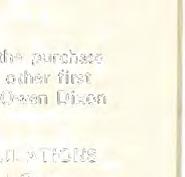
A report of the Joint Matrimonial Clauses Committee has been forwarded to the Law Council of Australia as a report of the Joint Matrimonial Clauses Practice Committee out the Law Reform Committee or the Council forming any view upon This at the nquest of the Law Council. In addition, the Joint Matrimonial Causes Committee been asked for its comment on the draft Family Law Regulations , and in particular comments upon the scale of costs and Schedule 2 of the draft Regulations and respect to Regulation 27 which eliminates Court Vacations.


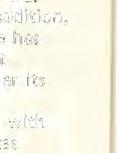
SANCTIONS IN PREVENTING ACCIDENTS


Committee to the


to proposals outlined in a letter from the Law Institute concerning research into the effectiveness of sanctions in preventing road accidents.
ADMINISTRATIVE APPEALS
TRIBUNAL 1975
The Law Council of Australia required a report urgently on this Bill. Accordingly, arrangements were made for a member of the Bar to prepare a report on the Bill, and th is report was forwarded to the Law Council early in April, 1975.
COUNSEL SPEAKING LOUDLY


The Editors of the Bar News have been asked to refer to the need for Counsel to speak loudly in moving admisstions . This is apparently not a reflection upon the ability of Counsel to make themselves heard by the members of the Full Court, but because the acoustics of the First Court make it difficult those attending admissions as spectators to hear what COllnsel say.


OFFICERS AND MEMBERS OF BAR COUNCIL AND BAR COMMITTEES
The officers and members of the Bar Council and Bar Committee and Bar representatives on outside bodies as at 10th April 1975, are shown in the glass covered notice board in the passage between the Clerk's offices.


comprise one cook , two waitresses and two girls on the sandwich bar, and at present prices it would be uneconomic to employ more. Some of the plant and equipment is defective or inadequate. It appeared that the prices charged for the food was inadequate having regard to the general practice in the catering trade elsewhere. Substantial structural alterations to enable an improvement of the facilities of the kiosk could not be justified as a 'matter of economics.
Following upon these reports and consideration by the Bar Council, the Council decided to investigate fully the question of catering in Owen Dixon Chambers from a long term point of view, but in the short term it resolves -
That the Catering sub-Committee be authorised to proceed with the following items:


A. The provision of appropriate maintenance for the Cool Room, Stove, Deep Fry
B. C.
D.
and Coffee Urn presently in

The provision of a suitable new toaster


A maintenance inspection of the Conditioning so as to achieve more efficient function thereof in kitchen. The retention of an Architect to investigate the possibility of:-

BAR CATERING

In October 1974 the Bar Council received a letter signed by about 60 secretaries working in Owen Dixon Chambers complaining about the catering services on the 13th floor.


The matter was investigated by the Chairman and the then Vice -Chairman, and also the Catering committee consisting of the Hon. Treasurer (Walsh) and Dowling and Batt, and reports were placed before the Bar Council. reports included advice received from an outside catering expert who made an extensive examination of the operations on the 13th
E.

(i) An extension of the flue over the washing machine in the kitchen to the area immediately behind the Kiosk so that the flue can serve both washing machine and Kiosk;
(ii) The provision of a suitable removable partition wall and entrance door to the Dining Room to extend from a position at or about the site of the present cabinet to the pillar on the south wall;
(iii) Ingress and egress from the Lounge Room to the outside verandah area.
To implement the recommendation of the Architect in respect of the matters referred to in "D" hereof if considered appropriate.

the catering Sub-Committee be authorised



to recommend to the caterer an increase in the charge for meals in the Dining Room as part of negotiations for improved food and service.
That a circular be sent to members of the Bar informing them of the substance of the action which has been taken, seeking their patron{lge of the Dining Room and making recommendations as to the hours during which their Secretaries ought to attend the Kiosk for the purpose of purchasing lunches for their employers.


That a circular be sent to Secretaries employed in Owen Dixon Chambers providing appropriate information in relation to price listings and such other items as are considered necessary and recommending hours during which they should attend the Kiosk to purchase items therefrom.


the Catering Sub-Committee be authorised arrange for the regular cleaning of the outverandah area and maintenance of the thereon by the caretaker and to negoan appropriate remuneration to the carefor services.




the Catering Sub-Committee be constituted permanent Committee consisting of Batt and Dowling to be responsible generally the maintenance of the catering other services on the 13th floor and to regularly to the General Committee of Bar Council.

Furthermore on the 10th April 1975 the Bar Council adopted the following further recommendations:-


improvement of the quality and presentation of food, as a result of a price increase

adoption of a plan for a varied cycle over a period of 34 weeks, discussion between 'the caterer and Catering Committee.

adoption of a simplified system of for meals by barristers, and abandonment whereby only cash
Lounge and either replacing (in in part) or shampooing of the the 13th floor

(e) The installation of a "charcoal grill" and ceramic stones), and a low level "Bain Marie" for hot foods.
(f) The acquisition of sufficient furniture ensure that the tables and chairs adequate to cope with the increase demand.

(g) The alteration of the layout the to facilitate faster turnover.

(h) The implementation of self-service ties from the counter in the lounge.
(i) The purchase of additional furniture the lounge area, as required.

repainting Room


(j) The circulation form sandwich orders
(k) The adopting by the caterer policy of towards secretaries.

Farewell: JUDGE DETHRIDGE










Judge Leo Dethridge appointed County Court Bench in 1946, of the present commenced courses. There left member him in He ance of common and ation of the merits of a case. to the last ditch for the cause he and would seek a compromise when appreciated that his client's best were served by keeping out of court. word always his bond and he never misled either opponent or a judge On the bench, there in the man we so has no delusions judicial menopause, form of pontification.



Above was and tolerance which He who way



tained an unfailing faith in his fellow man, and in the criminal cases he heard, brought compassion and understanding to the treatment of human frailties. Even when those to whom he extended leniency let him down (as they often did). he did not visit wrathful vengeance on the miscreant.
Leo was a quiet judge. He made no headlines. He is rarely mentioned in the law reports. He was rarely appealed against, and even more rarely, successfully. In 1970, he became the last Chairman of the County Court Judges, and his organisational and administrative skill ensured a smoothly working bench to the satisfaction of his colleagues and the profession generally. It seems hard to realise that he has reached the retiring age, as he retains such a keen interest in all that goes on around him, particularly the activities of youth, and the artistic and sporting spheres. We hope that in his retirement, he will continue to associate with the bar and visit us often.




bail be readily available. These recommendations are reported at Page 18.
The position of Chief Judge of the County Court in Victoria is one newly created by statute, and His Honour's elevation to this high .office has been widely acclaimed.
JUDGE MORNANE
John William Joseph Mornane was appointed a Judge of the County Court on the 8th April 1975.
Educated at ·Xavier College he emerged from Melbourne University as a colourful heavy weight with a well deserved reputation for wit and partinacity. His latter day opponents will not have noted any change.





Welcome:

CHIEF JUDGE WHELAN
On 19th March 1975 Desmond Patrick Whelan O.C. commenced his appointment as Chief Judge of the County Court of Victoria following the retirement of Judge Dethridge C.M.G. His Honour was educated at Xavier College, and after naval service from 1943 to 1946, he attended the University of Melbourne.


He was admitted to practise in 1950, and on the 6th of October of that year he signed the Roll of Counsel and entered Equity Chambers as the pupil of Fazio. He quickly established a large general practice at the bar, but particularly he became known as an expert in the "running down" jurisdiction. He took silk in 1964, and is 49 years of age. From March 1972 to the date of his appointment, His Honour was a member of the Victorian Bar Council, and as such he had been Chairman Comm ittee and also Committee reporting on certain rights and convicted particularly recommending that




His Honour suffered only two disruptions to his practice. The first on the outbreak of War in 1939 he enlisted as a private and emerged as a sergeant; the second on his discovery of ancient game of golf in 1954 in which his promotion has not been quite so rapid. Hence his tendency to plead golf of skill or alternatively a game of chance".

Certainly an advocate with wider ing of the law would be hard to knowledge coupled with a human for the less reputable side of life away from his initial practice in the equity and into that of civil judge. It has said that a jury is composed of twelve men who are chosen to decide which of the parties has the better barrister. If the adage be accurate then one could only say that on this course those represented by Mornane left nothing to chance.



His involvement in the law has not been confined to advocacy. He devoted many years to tutoring at the Melbourne University and over a period has whelped no less than twelve pups. His appointment end of an era for the Bar.





The Bar has already given testimony to his popularity at his welcome and those Counsel who heard his address from the Bench on that occasion can have no doubts as to the way they to approach him In his new office.




A.l.A.O.
July 25
Attorney General foreshadows and A. L.A.O. to provide legal services
LEGAL AID IN VICTORIA
for :pensio'Hrs

The following chronology sets out the milestones ex·servicemen and dependants in the history of legal aid in Victoria as at aborigines 1st May, 1975. migrants assisted overseas students
1949 Bar and Institute press Hollway other approved persons Government for Poor Persons Legal everyone in need in Federal law Assistance Offer accepted but not matters. implemented by government Austral ian Legal Aid Review Similar offer renewed to each Committee appointed ("Turner successive government Committee")


Legal Aid Act passed. Limited Sept. 6



A -G establishes A.L.A.O. by Assistance only. directive. No means test for pension Legal Aid Committee commences ers, aborigines, students, serviceoperation. Function complemen- men and no fixed means tary to civil and criminal aid avail- others. able from Public Solicitor
1974







Jan. A L.A.O begins recruiting
Feb. 8 First report of
17 Legal Aid Committee obtains 20% of Guarantee Fund Committee ("Turner (Act 7539)

May 6 A L.A O Sunshine opens 7 Duty lawyer provided

Dec. 2 Legal Aid Committee obtains 30% Institute for three weeks of surplus of Guarantee Fund Magistrates' Court. (Act 7889) 15 Law Council of Australia


Dec. Public Solicitor divested of civil a committee to examine jurisdiction (Act 7919) Turner
1972



June 3

Duty lawyer provided

May 9 Legal Aid Committee obtains 50% Institute for three weeks of surplus of Guarantee Fund Melbourne Magistrates' Court (Act 8259)






June 30 legal Aid Committee balance Service commences. for year 1973-74 services provided - State Government contributes Since then, some 25 only $2,000 have commenced -Income derived (inter alia) Australian Solicitors Fund-39% Council amends rules




July 16 Council committee's barristers participate Service organisations. of


L.A.O. states' Conference Aid A.L.A.O





soliciting business throughout Australia, with no definite policy on many matters inc\uding:-
- means test for applicants
- its own sphere of operations
- payment to independent profession it retains
- whether it should act for opposing parties
Legal profession representatives meet to settle a memorandum for discussion with A-G.
Meet i ng with A-G who contends
- need for an independent profession


- need for free comprehensive well advertised A.L.AD. with a flexible means test
A.L.A .D. would not act for two opposing parties
A.L.A.D. should pay 100% of fees of private profession retained by it he is in favour of commission (headed by the A-G) to co -ordinate all legal aid.

Victorian Bar Council decides:recommend to Law Council
A.L.A.D. and Legal Aid Committee operate in tandem without change to the contemplated functions of either

- not to participate in any challenge to A.L.A.D.'s constitutionality and advise the Law Council not to do so e ither.
Law Institute determines method of controlling work from A.L.A.D. to profession and circularises members.
Copy provided for members of Bar.
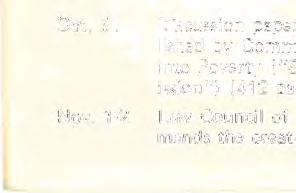
paper on Legal Aid pubCommission of Enquiry ("Sack ville Commpages) creation

Nov. 7 21 28
commission ("The Australian Legal Aid Commission") which would (inter alia)

- define the scope of A.L.A.D. formulate guidelines on means test for applicants
- allocation of work between salaried and private profession
- the fees to be paid to the private profession
Submissions of different legal bodies invited.
Victorian Bar Council recommends that A.L.A.D. itself become an independent statutory body, and otherwise indorses Law Council's recommendations.

A.L.A.D. plans new offices in Ballarat, Footscray, Morwell, Preston, Ringwood and Shepparton and continues to recruit staff.


A.L.A.D (Melbourne) advises that it will use the same referral procedures as the Legal Aid Committee, and, like the committee, pay 80"10 of certified costs.



















Law Council requests A-G to e.stablish an independent Australian Legal Aid Commission.
Victorian Bar Council distributes memorandum to members detailing procedures to be adopted when briefed by A.l.A.O.
Victorian Bar suggests to A.l.A.O. that it should be converted into an independent statutory corporation.
A l.A O. advises that it will now pay "90% of the full appropriate br ief fee".
A.l.A.O. announces it will not engage in conveyancing work
Law Institute extraordinary general Meeting called for 20th February to move (inter alia) unconstitutionality of A.l.A.O .
Senator Murphy A.G. (Senator Murphy) becomes High Court Justice . Replaced by Mr . Enderby , O.C
A-G. confirms payment of 90% of






21
March 12
15
brief fees as a move to payment of full fees.
A l.A.O now has 26 offices with 34 more planned to open in 1975
A-G . addresses Bar at O .D . C.
A-G attends Law Council meeting. Discussion on Iy.
20 A C T Supreme Court declares (inter alia) that barristers and solicitors while performing duties for A.L.A.O. are not entitl ed to act for members of the public in A .C .T. - Law Institute members asked to give postal vote (inter alia) on constitutional challenge to A.L A O
31 The indications are that impending claims on the Guarantee Fund will mean no surplus and thus no funds from that source for the Legal Aid Committee (39% of income derived from this source 1973-74).


April 15
24
April
By a postal ballot, solicitors Law Institute to challenge constitutionally .
A-G. indicates that no more federal funds may be pa id to the Legal Aid Committee if the challenge to A.l.A.O.'s constitutionality proceeds.



A.L.A.O. and Legal Aid Committee hold decisions regarding their respective functions. Australian Govern ment agrees to pay $807,682 to Legal Aid which is required to continue its operations until 1975. As a result of the conference the following arrangements, limited to the year ending 30th June, 1975, were made.
The Legal Aid Committee refer the following to the




(1) Applicants for any ings arising out Commonwealth Matrimonial Causes


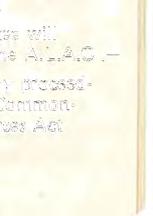

(2) Persons charged with offences under any Commonwealth legislation.
(3) Applicants for aid in any civil proceedings under Commonwealth legislation.
(4) All persons in receipt of Social Service Benefits (including Unemployment Benefits.)
(5) Students.
(6) Newcomers to Australia.
(7) Exservicemen (limited to British or Australian) .

The A.L.A.O would refer to the Legal Aid Committee all applicants for aid (except those falling within categories (4), (5), (6) and (7) above) in the following matters.
(1) Matrimonial matters arising out of State Law

Criminal matters under State Law in either a Magistrates Court or the Appeal jurisdiction of the County Court.
(3) Civil proceedings under State Law in all jurisdictions:



May 6 Australian Government announces to the press that the sum of $307,082 will be paid direct to the Legal Aid Committee.
The above short history is felt necessary for the information of members. It may readily be seen that all persons involved in the provision of legal service are unanimous in their support of moves to have legal services available to all who may require it. This means of course that present legal services must be extended.



An extension of legal services is necessary despite the blossoming of some 25.Free Legal Services in Victoria. Their existence is a mere pointer to the need, not a satisfaction of it. Clearly also, the extension of available legal services cannot be made by the profession



itself. Hitherto the Legal Aid Committee has provided an opportunity for many to obtain legal advice which was hitherto beyond their means. Again, few would suggest that the Legal Aid Committee satisfied the need.
What was necessary was the purse of the Federal Government. Only that source had finance sufficiently ample to enable the necessary and proper expansion of legal services.
The fact that the Federal Government is now prepared to finance the extension of legal services must be a consolation to lawyers and public alike.
Then why the wrangle? The essence of the present debate is to be found in the question what form should the Federal assistance take. Should the Federal Government make a massive infusion of funds into the Legal Aid Committee? Or is it more appropriate to set up a whole new organisation - A.L.A.O.?
Many practitioners hold a deep seated suspicion of A.L.A.O. They are concerned at the prospect of competing with an organisation with unlimited funds, the right to advertise and which offers legal services free of charge. They believe it will result in nationalization of the profession and frustration of the legal services intended to be provided, because of inevitable and unavoidable bureaucratic expansion and inefficiency.
This view may be a little far fetched and heroic. But it has not been mollified by the conflict among some pronouncements by A . L.A.O. on its intended sphere of operations nor by the apparently generous interpretation of these pronouncements by A.L.A.O. officers in practice. But, whatever its intentions, A . L.A.O. wilt be unable to operate without using a vast number of practitioners and if many of these choose not to be on the staff of A.L.A.O. and to remain in private practice then A.L.A.O. must tailor its operations to take account of this. Or if it is not prepared to accept this restraint, it will need to use and probably to rely upon the private profession. Yet, if A.L.A.O. advertises, as it will probably need to, it wilt certainly take a major share of all new clients




Unfortunately for those at ringside, one of the contestants may have difficulty coming out for the next round. Impending claims on the Guarantee Fund may well result in the demise of the Legal Aid Committee (see diagram)
Should there be an attack on the constitution· ality of A.l.A.D.? The Law Institute members have moved that this question be resolved, and certainly the feeling within the profession is that they stand a better than even chance of success in respect of certain activities of the A.l.A.D.
The Bar Council has taken the view that it is far more important to have a separate statutory Australian Legal Aid Commission overseeing A.l.A.D. and the services which it provides and working for the co-ordination of legal aid services throughout Australia. It also takes the view that the A l.A.D. ought to be indepen' dent of any government department. The Bar Council is a strong supporter of the policy of the Law Council of Australia on legal aid and the A.L.A.D.


The Bar Council has an advisory committee of advise the Bar Council upon policies upon Justice





taken on this advisory committee by Costigan G .C . , and he and Dowling now constitute committee The representative of the Bar upon the Executive of the Law Australia is McGarvie G.C. D. Bennett Assistant Honorary Secretary of the Council.

The Bar representatives on the Legal Committee are Hogg G.C., D'Bryan Dyett and Villeneuve-Smith.



REFORMS TO PRACTICE and PROCEEDURE IN SUPREME COURT
An extensive report covering 55 pages commending fundamental changes to practice and procedure in the Supreme Court to delays was adopted by the Victorian Bar Council and the Council of the Law Victoria and has been forwarded to Justice and the Law Reform Commissioner. Both Counc ils adopted the details Standing Pract





Procedure. The Bar Council did not adopt a small portion of the report which had recommended the appointment of Acting Judges to the Supreme Court This Joint Standing Committee makes reports and recommendations in practice and procedure in the Supreme Court. It has three representatives appointed by the Bar Council and three appointed by the Council of the Institute . The members of the Committee who made the report are J.D. Davies a.c., H.w. Fox, W Ormiston (Bar representatives), G.M. Stewart, W. Clancy and B.M. Fry (Law Institute representatives). For the purposes of this report the committee was joined by two additional representatives with particular knowledge of Matrimonial Causes, K.J.A. Asche (Bar representative) and T .A. Pearce (Law Institute representative).





Committee examined a number of reports of committees of the Bar and committees of the Institute made in recent years upon improvements to practice and procedure in the Supreme and made a comprehensive report upon alterations now considered necessary.
following recommendations were made by Committee:
cases be broght on early before a Judge on a procedure similar to a Summons for Directions at which the Judge_would enquire as to the real issues between the parties and the likelihood of settlement. It is essential that the clients be present when this is done so that enquiries are made of counsel as to the outstanding issues in the presence of their clients. Cases wh ich are settled could be disposed of forthwith.
The early hearing of custody disputes and other disputes involving children should receive the highest priority.
PRACTICE COURT AND MISCELLANEOUS CAUSES LIST
A third additional Judge should be appointed to assist in Practice Court and Miscellaneous Causes work. Two Practice Courts and a Miscellaneous Causes List should be correlated so that the three courts function as a cohesive unit. One of the Practice Court Judges should handle' predominantly the Matrimonial Causes applications. The cases to be referred to the Miscellaneous List should be limited to the lengthier of the Practice Court type of application. Long cases should go to another List.

JUDICIAL SPECIALIZATION
Without dividing the Court into divisions its should be organized so that Judges who perform particular judicial work with dispatch and efficiency should devote extended periods in doing that work and should be given the general control over and guidance of 'the cases in that field.
MATRIMONIAL CAUSES

The appointment of at least wo additional Judges is necessary to handle the present Matrimonial Causes work of the Supreme Court one additional Judge is needed to assist with the disposal of undefended suits.



In defended it is recommended that for a trial period a system be followed in which the Judges would active part in promoting settlements. suggested that defended


Many of the applications in the Practice Courts should be heard at appointed times and every attempt should be made to fix reasonably accurate times and dates for the commencement of the hearing of proceedings in the Miscellaneous Causes list.
COMMERCIAL CAUSES

There should be a Commercial Causes list as has existed in England since 1894 and in New South Wales since 1903. This would enable Commercial litigants to obtain a rapid decision upon a commercial problem. The List should be under the control of a particular Judge who might order that the matter be heard without pleadings, might define the issues to be tried, to direct the parties to admit the facts which are of similar of





LIST TO BE CONTROLLED BY A PARTICULAR JUDGE
The following fields of work should be placed under the overall control and guidance of a particular Judge:

1. Appeals under the Valuation of Land Act.
2. Building Cases.
3. Taxation Appeals.
4. Originating Summonses concerning the interpretation and administration of wills and trusts.

Commercial Causes.
LISTING CASES BY THE TERM INSTEAD OF THE MONTH





To avoid the loss of time involved in the changing of Lists at the end of each month cases should be listed by the term. There should be four terms extending from 1 st February to Easter until the mid·year vacation; midvacation until 30th September; and 1st until the long vacation. Cases would so that the hearings would cease about days before the end of each term. The sitting in Crime, the Full Court and on circuit could be treated as a separate group, changing their lists between themselves at the term.
LISTING OF CASES IN THE JURY LISTS
should be fixed to commence on a fixed done in many other jurisdictions.





Several alternative ways of achieving this are forward. One is the system used in the New South Wales Supreme Court and elsewhere, in which a Court officer called an Administrator controls all the main lists, lists cases for hearing the day of hearing allocates each case to Judge for hearing. The fixing of days is done on the basis of figures showing the average wh ich can be disposed of ina
Another system is to have a to take cases from any of the delayed. method than cases list should become


The report strongly recommends that fixed dates be provided for the trial of all non jury cases, but makes no specific recommendation as the method to be adopted to achieve this.


LISTING OF CASES IN THE JURY LISTS

It is not recommended that fixed dates be provided for jury cases, but it is recommended that jury cases be placed in a terms Iist rather than a months list.

INCREASE IN THE NUMBER OF JUDGES

While it takes the view that there would sufficient work to keep five additional occupied the report limits its recommendation to the appointment an additional three judges as mentioned above. Besides reducing list delays this would reduce the pressure the existing Judges.



PHYSICAL FACILITIES

The report states that the inadequate to cope with the Supreme Court now nise that it will take a good provide additional, adequate In the meantime, it is recommended that spaces available in suitable buildings law courts this space be availed for

AMENDMENTS TO THE RULES OF SUPREME COURT


It is recommended that the pleading amended to provide that each party admit such of the material allegations in the pleading of the opposite party true and a defendant shall not deny the allegations contained in the Statement Claim but shall set forth the facts he rei ies, even though this may involve assertion of a negative.




It is recommended rules to discovery ments the alternatively shall endorse pleading requires documents.

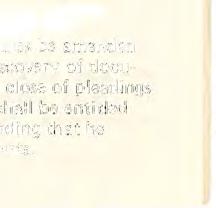


The rules as to interrogation should be altered to ensure that interrogatories are not prolix directed only to obtaining admissions of which proof is required and to the essential elucidation of facts in issue.


RESPONSIBILITY OF COUNSEL

The Bar Council should take steps to instil in counsel a general feeling of responsibility respect to the costs and length of litigation. the responsibility of solicitors, the Law Institute should take steps to see that its members understand and carry out the proceed· required for the efficient conduct of litigation It should inform its members of what regards desirable procedures in various of litigation and of the time limits which efficient solicitor should achieve with ressuch things as pleadings, discoveries, interrogatories, medical reports and the like.




JUDGMENTS
that Reserved Judgments down as is done in the High no1'be read in the presence solicitors.
CONCLUDING REMARKS
report states that improvements to preprocedures will achieve little result unless a sufficient number of Judges to cope with the volume of each day's sittings, as well as attention to preparation for trial and the problems arising prior to trial. The appointment of additional Judges is a vital pre-requisite to successful reform. If the administration of the law is to be efficient there must be an adequate number of Judges in courts to deal with the cases which are ready to proceed.




the Council

changes of the type recommended had been made since he became Chief Justice.

It also states that it is important that there be fixed dates for hearings so parties can plan for a hearing at a certain time. The report concludes that the present situation of the lists discourages commercial litigation and promotes inefficiency.

MONASH UNIVERSITY LAW LIBRARY
The Monash University law library is now in a position to offer a limited range of services to practising members of the legal profession. The library is prepared to lend textbooks for short periods if they are not in demand students, and periodical articles and reports generally be available through photocopying







Enquiries be directed

E.J. Gibson, Law Librarian, Monash Un iversity, CLAYTON. 3168 Phone: 541-3310

YOUNG BARRISTERS' NEWS


It is proposed to publish in each forthcoming edition news of particular interest to the 60"10 of practising Barristers of less than seven years' call.


Bar News has been told by the Young Barristers Committee that there has been since March 1975 no news of particular interest to this group.



SPORTING NEWS

taken




































































































































































































